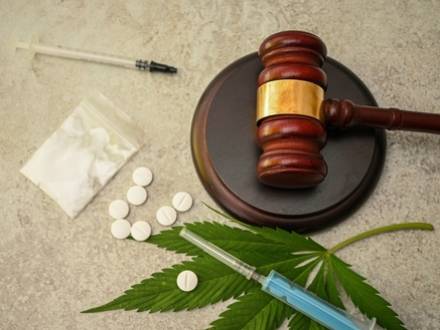Recent Blog Posts
Can Ring Doorbell Cameras Be Used for Police Surveillance?
 Devices in people’s homes that are connected to the internet can provide many benefits. However, people may not realize the rights they could be giving up by using these technologies, and they may be unaware of how law enforcement may use data gathered by large corporations. Doorbell cameras are one example of technologies that may have unintended consequences. Some recent revelations about how data is gathered and used by Ring, a popular doorbell camera manufacturer, have raised concerns about privacy and the sharing of information with law enforcement.
Devices in people’s homes that are connected to the internet can provide many benefits. However, people may not realize the rights they could be giving up by using these technologies, and they may be unaware of how law enforcement may use data gathered by large corporations. Doorbell cameras are one example of technologies that may have unintended consequences. Some recent revelations about how data is gathered and used by Ring, a popular doorbell camera manufacturer, have raised concerns about privacy and the sharing of information with law enforcement.
In criminal cases in the 21st century, technology and data play a more important role than ever. Understanding how to address digital evidence can be crucial for those who are facing criminal charges. An attorney who knows the ways camera footage, online information, and other factors can affect a criminal case can work with defendants to develop successful strategies that will address these issues correctly.
When Can the Use of AI Chatbots Lead to Criminal Behavior?
 Artificial intelligence (AI) has been one of the most exciting and impactful technologies to emerge in recent years. People have used AI chatbots and tools like ChatGPT, Claude, Google Gemini, and Microsoft Copilot for a wide variety of activities that range from looking up information or asking for advice to creating images and videos or writing computer code. However, many people do not fully understand how AI tools work, and there have been numerous cases in which chatbots have encouraged unsafe behavior or have been used to commit crimes.
Artificial intelligence (AI) has been one of the most exciting and impactful technologies to emerge in recent years. People have used AI chatbots and tools like ChatGPT, Claude, Google Gemini, and Microsoft Copilot for a wide variety of activities that range from looking up information or asking for advice to creating images and videos or writing computer code. However, many people do not fully understand how AI tools work, and there have been numerous cases in which chatbots have encouraged unsafe behavior or have been used to commit crimes.
Because AI is a new technology that is changing on a constant basis, the legal issues surrounding the use of chatbots and other tools can be unclear. People who have been charged with crimes that were encouraged by AI chatbots or who have been accused of using AI to commit criminal offenses will need to understand their legal options for defense. An attorney who understands the role that technology can play in criminal cases can provide a strong defense, working to ensure that people’s rights will be protected and that they will be able to address legal concerns related to AI correctly.
ICE’s Use of Surveillance Technology Raises Privacy Concerns
 The actions taken by government officials to address concerns related to immigration have become one of the most pressing issues affecting people in the United States. Operations conducted by federal agents working for Immigration and Customs Enforcement (ICE), Customs and Border Protection (CBP), and other agencies under the Department of Homeland Security (DHS) have affected people in major cities. Agents have been rounding up and detaining people who are suspected of being illegal or undocumented immigrants, and they are taking steps to deport these people from the United States.
The actions taken by government officials to address concerns related to immigration have become one of the most pressing issues affecting people in the United States. Operations conducted by federal agents working for Immigration and Customs Enforcement (ICE), Customs and Border Protection (CBP), and other agencies under the Department of Homeland Security (DHS) have affected people in major cities. Agents have been rounding up and detaining people who are suspected of being illegal or undocumented immigrants, and they are taking steps to deport these people from the United States.
As people have watched ICE’s operations, they have been shocked by the actions of agents. Many agents have used unnecessary violence when detaining suspects or confronting protesters, and their actions have led to the deaths of two American citizens in Minneapolis, Minnesota. However, in addition to the excessive force used by agents, concerns have also been raised about the use of surveillance technology by ICE and other DHS agencies. As these agencies gather and process large amounts of information, they may violate the privacy rights of American citizens and others who get swept up in their dragnets.
Conditions in Prisons Can Violate People’s Rights and Increase Crime
 Most people believe that prisons are necessary to address crimes that have occurred, provide punishment, remove people who are considered to be dangerous from society, and help criminals take steps toward rehabilitation. However, people often turn a blind eye to the realities of prisons, failing to fully consider the conditions that prisoners are subjected to and the abuses they often suffer. In far too many cases, prisoners are mistreated, and the treatment they receive is likely to lead to increases in crime, which is the opposite of the purpose of the criminal justice system.
Most people believe that prisons are necessary to address crimes that have occurred, provide punishment, remove people who are considered to be dangerous from society, and help criminals take steps toward rehabilitation. However, people often turn a blind eye to the realities of prisons, failing to fully consider the conditions that prisoners are subjected to and the abuses they often suffer. In far too many cases, prisoners are mistreated, and the treatment they receive is likely to lead to increases in crime, which is the opposite of the purpose of the criminal justice system.
Because of the harsh treatment people are likely to face when in jail or prison, anyone who is charged with a crime will need to determine what steps they can take to avoid incarceration. An attorney with extensive experience in criminal defense can provide the representation needed during a criminal case, helping a person take steps to avoid a jail sentence and minimize the penalties that could affect their life for years to come.
Will Federal Restrictions on Marijuana Be Relaxed?
 In December of 2025, President Donald Trump issued an executive order calling for the reclassification of marijuana from a Schedule I controlled substance to a Schedule III substance. This is a change that criminal justice advocates and stakeholders in the cannabis industry have called for, but some questions remain about when it will be implemented and what effects it will have on criminal cases involving drug charges.
In December of 2025, President Donald Trump issued an executive order calling for the reclassification of marijuana from a Schedule I controlled substance to a Schedule III substance. This is a change that criminal justice advocates and stakeholders in the cannabis industry have called for, but some questions remain about when it will be implemented and what effects it will have on criminal cases involving drug charges.
Federal laws and policies related to controlled substances can be complex. While changes to the ways the government addresses marijuana could affect some criminal cases, people who have been accused of drug crimes will need to understand their rights and their legal options. Representation from an experienced attorney is crucial in drug crime cases prosecuted at the federal or state level.
Can "Deepfake Cyberbullying" Lead to Criminal Charges?
 Artificial intelligence (AI) has been a hot topic over the past several years. People can quickly and easily use AI tools to generate all sorts of content, from essays and poems to images and videos. As these tools become more powerful, they have been able to create images that are nearly indistinguishable from photographs or videos of actual people.
Artificial intelligence (AI) has been a hot topic over the past several years. People can quickly and easily use AI tools to generate all sorts of content, from essays and poems to images and videos. As these tools become more powerful, they have been able to create images that are nearly indistinguishable from photographs or videos of actual people.
Imagery that appears to depict real people is known as "deepfakes." In some cases, people have used AI to create deepfake pornographic material that appears to show people in the nude or engaging in sexually explicit activities. This has become a concern in schools and other settings, where deepfakes have been used as a form of cyberbullying. To address this issue, laws have passed that have made it illegal to share these types of materials.
Students or others who have been accused of deepfake cyberbullying may face serious criminal charges, even if they were not directly involved in creating these materials. Because this is a new issue that is only beginning to be addressed by criminal courts, people who are facing these types of charges will need to work with an attorney who has a strong understanding of how computer crimes are prosecuted and the options for defense in these cases.
Lack of Mental Health Care Can Lead to Criminal Charges
 In recent years, the United States has experienced a crisis affecting people who suffer from mental illnesses. Hospitals and other facilities that provide mental health treatment have been filled to capacity, making it more difficult for people to receive the care they need. Due to this lack of treatment, many people with diagnosed mental illnesses have gone on to commit criminal offenses. This has caused them to become involved in the justice system and led them to become incarcerated in jails or held in mental health facilities, which has added further strain to the system.
In recent years, the United States has experienced a crisis affecting people who suffer from mental illnesses. Hospitals and other facilities that provide mental health treatment have been filled to capacity, making it more difficult for people to receive the care they need. Due to this lack of treatment, many people with diagnosed mental illnesses have gone on to commit criminal offenses. This has caused them to become involved in the justice system and led them to become incarcerated in jails or held in mental health facilities, which has added further strain to the system.
As this cycle continues, more people are facing criminal charges based on actions taken when they were not in the right state of mind. To ensure that a person who suffers from a mental illness can address criminal charges and receive the proper treatment rather than being sent to jail, it is important to work with an attorney who can help defend against criminal charges. With representation from a skilled lawyer, a person can take steps to resolve a criminal case successfully and determine what resources may be available to address mental health concerns.
DNA Collection May Lead to Increased Government Surveillance
 Since the beginning of President Donald Trump’s second term in office, his administration has focused on cracking down on illegal immigration. Immigration and Customs Enforcement (ICE) and other branches of the Department of Homeland Security (DHS) have been conducting operations in which thousands of people have been detained, including undocumented immigrants, people who are in the country legally, and even U.S. citizens. As part of these efforts, DHS has been collecting DNA samples and other biometric data, which has raised concerns about increased government surveillance and the ways this data could be used in criminal cases.
Since the beginning of President Donald Trump’s second term in office, his administration has focused on cracking down on illegal immigration. Immigration and Customs Enforcement (ICE) and other branches of the Department of Homeland Security (DHS) have been conducting operations in which thousands of people have been detained, including undocumented immigrants, people who are in the country legally, and even U.S. citizens. As part of these efforts, DHS has been collecting DNA samples and other biometric data, which has raised concerns about increased government surveillance and the ways this data could be used in criminal cases.
For those who may be charged with federal crimes, understanding the role that DNA evidence, biometric data, and other information collected by the government can play in these cases is not always easy. In these situations, a skilled attorney can help ensure that a person’s rights will be protected while also working to develop successful defense strategies.
New Criminal Justice Reform Laws May Enhance the First Step Act
 The First Step Act was signed into law by President Donald Trump in 2018, and it made a number of reforms to the federal criminal justice system. It was meant to help reduce recidivism and ensure that people who have been convicted of crimes can re-enter society successfully after serving their sentences. While these reforms have been helpful, there are many additional opportunities for positive change in the justice system. Legislators recently introduced potential new laws that are meant to enhance and expand the First Step Act.
The First Step Act was signed into law by President Donald Trump in 2018, and it made a number of reforms to the federal criminal justice system. It was meant to help reduce recidivism and ensure that people who have been convicted of crimes can re-enter society successfully after serving their sentences. While these reforms have been helpful, there are many additional opportunities for positive change in the justice system. Legislators recently introduced potential new laws that are meant to enhance and expand the First Step Act.
Even after reforms have been made, people who face federal criminal charges may still be subject to harsh penalties, including lengthy prison sentences, high fines, restitution, and ongoing difficulties related to a criminal record. Legal representation from an attorney who has experience representing clients in federal courts can be crucial in these cases. A skilled criminal defense lawyer can help defendants address federal charges, fight against convictions, and minimize the effects on their lives.
Presidential Executive Orders Address Marijuana and Fentanyl
 During his administration, President Donald Trump has issued a large number of executive orders that have affected many areas of the law, including criminal cases. Recently, he issued two orders that may have an impact on drug crime cases. These orders addressed two substances that play a role in many drug cases: marijuana and fentanyl.
During his administration, President Donald Trump has issued a large number of executive orders that have affected many areas of the law, including criminal cases. Recently, he issued two orders that may have an impact on drug crime cases. These orders addressed two substances that play a role in many drug cases: marijuana and fentanyl.
For people who may face federal charges related to controlled substances, understanding how laws and government policies have changed is not always easy. Defending against federal crimes will require strong representation from an attorney who has experience in federal courts.
Trump Orders Federal Agencies to Reclassify Marijuana
For years, the federal government in the United States has classified marijuana as a Schedule I controlled substance. Despite the fact that most states have legalized marijuana for medical or recreational use, the U.S. government treats it similarly to the most dangerous substances, like heroin or methamphetamine. People who face federal charges related to marijuana may be sentenced to serve long terms in prison while facing a number of other penalties.






